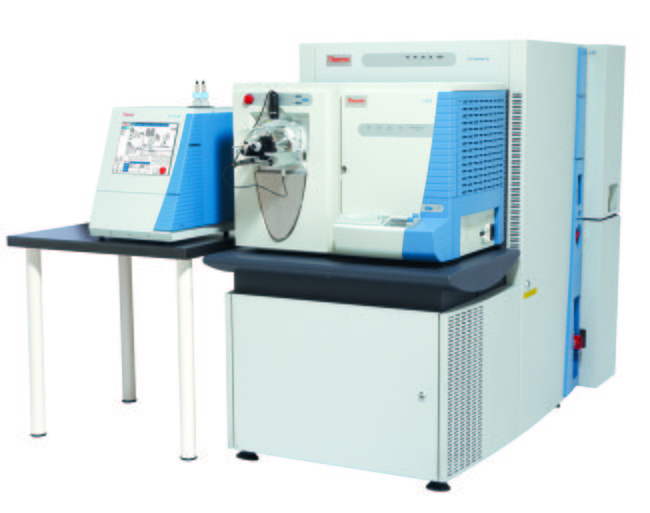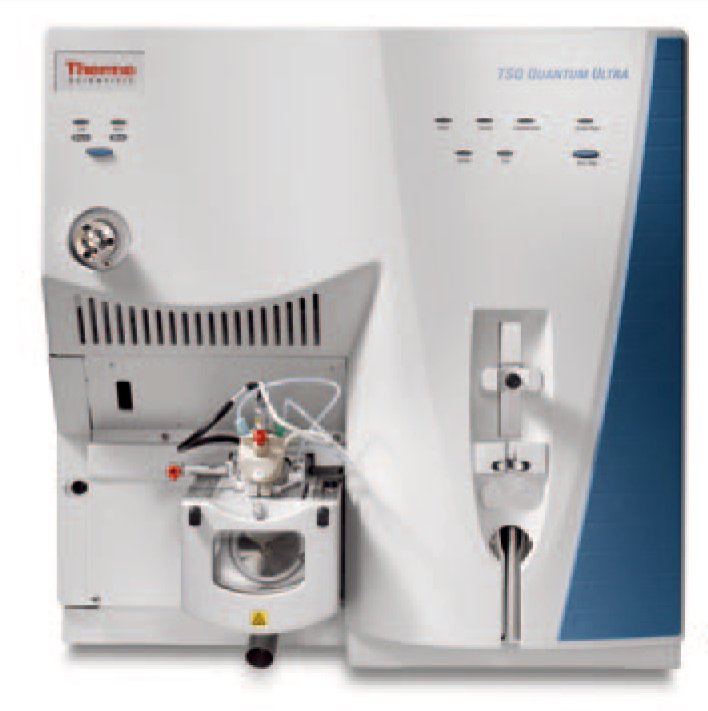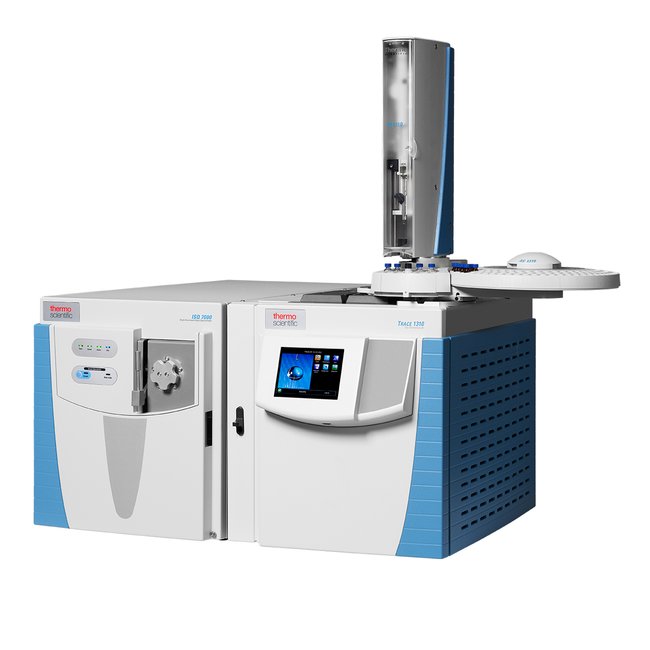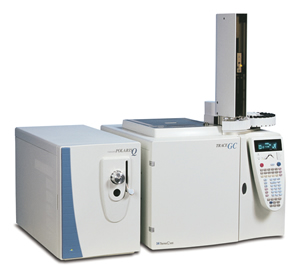Mass Spectrometry and Proteomics Laboratory
Our laboratory is located in the University of North Texas Health Science Center at Fort Worth. It is a research-oriented laboratory; however, we offer sample analysis, data processing and interpretation by laboratory personnel for researchers in the HSC and also to external academic institutions and industry. Prior arrangement with the Director of the Laboratory is required.
We have two LC-MS systems and two GC-MS instruments (from Thermo Scientific, San Jose, CA). Software resources for proteomics and bioinformatics include Proteome Discoverer, Sequest, Mascot, Scaffold, perSPECtives, Ingenuity Pathways Analyses, and many more.
Routine mass spectrometry and proteomic services include: MS molecular weight determination (small molecules and large molecules <100,000 Da), LC-MS, GC-MS, tandem mass spectrometry (MS/MS, MSn), protein identification by proteolytic digestion, nano LC-MS/MS and database search, quantitative proteomics. Please contact Laszlo.Prokai@unthsc.edu to discuss custom work such as complex proteomic analysis, and quantitation of small molecules and peptides in biological media (plasma/serum, tissues, cell culture, etc.).
Equipment
Thermo Scientific linear ion-trap / Orbitrap hybrid instrument (high-resolution MS and MSn)

Thermo Scientific linear ion-trap / Orbitrap hybrid instrument (high-resolution MS and MSn), coupled with a EASY nLC 1000 system that uses Microfluidic Flow Control to generate precise gradients for liquid chromatography (LC) at nanoscale flow rate. This increases mass spectrometer sensitivity and improves identification of low-abundance proteins. A regular-flow HPLC system (Agilent 1100) is also available. The system provides high resolution and sensitivity coupled with <3 ppm/sub-ppm mass accuracy. Available methods of ionization are electrospray (both regular and nanoflow), atmospheric-pressure chemical ionization (APCI), atmospheric-pressure photoionization (APPI) and direct analysis in real time (DART). Besides collision-induced dissociation (CID) and higher-energy CID (HCD), electron transfer dissociation (ETD) can also be applied. Triversa NanoMate, a chip-based infusion system, is installed for advanced/high throughput ESI-MS (including MS/MS and MSn) and combined on-line/off-line LC-MS.
TSQ Quantum Ultra (Triple-stage quadrupole tandem mass spectrometer)

TSQ Quantum Ultra (Triple-stage quadrupole tandem mass spectrometer): Available methods of ionization are electrospray (both regular and high-temperature, HESI), atmospheric-pressure chemical ionization (APCI), atmospheric-pressure photoionization (APPI) and direct analysis in real time (DART). High-performance liquid chromatographs (Thermo Vanquish Flex UHPLC and Eldex MicroPro) are connected to the TSQ Quantum Ultra, which permits separation at normal flow (0.2-2.0 mL/min, Surveyor) and microflow (5-20 μL/min, Eldex).
ISQ 7000 (Quadrupole GC/MS system, EI/CI)

ISQ 7000 (Quadrupole GC/MS system, EI/CI). This system can be used for separation of complex mixtures by gas chromatography and identification by mass spectrometry. Available methods of ionization: electron ionization (EI) and chemical ionization (CI).
PolarisQ (Quadrupole ion trap GC/MS system, EI/CI, MS/MS)

PolarisQ (Quadrupole ion trap GC/MS system, EI/CI, MS/MS). This system also can be used for separation of complex mixtures by gas chromatography and identification by mass spectrometry and tandem mass spectrometry. Available methods of ionization: electron ionization (EI) and chemical ionization (CI).
Services
Services offered by the laboratory
- Molecular mass determination
- Protein identification
- Identification of post-translational modifications of proteins
- Mass spectrometry-based protein quantification
- LC-MS and MS/MS analyses of small molecules (lipids, drugs, metabolites, etc.)
- GC-MS and MS/MS analyses
The facility does not store client samples, and does not archive electronic raw data files and electronic or hard copies of report(s) on analyses after payment is made for the services. Please indicate in your request, if you want your samples returned. With the report(s), raw data files could be sent on data DVD, when requested in advance.
Rates
|
Service |
HSC |
Other |
Industry |
| ESI-MS, LC/MS and MS/MS analysis | $140/hour | $180/hour | $250/hour |
| GC/MS Analysis | $50/hour | $70/hour | $105/hour |
| Consultation, interpretation, reporting and data analysis (upon request) | $100/hour | $140/hour | $180/hour |
| Custom project | Inquire | Inquire | Inquire |
| Enzymatic digestions: Sample prep-in-gel digestion Trypsin digestion – simple |
$20/hour $25/hour |
$25/hour $40/hour |
$30/hour $60/hour |
We charge for all samples, whether or not result is obtained. The only exception is when failure is due to instrument problem(s) or data processing error.
Sample submission
Download and complete our submission form:
Request for Mass Spectrometry Analysis (.pdf)
Send or bring samples in suitable packaging to the following address:
Attn: Dr. Laszlo Prokai
University of North Texas Health Science Center at Fort Worth
Room RES-458
3500 Camp Bowie Blvd
Fort Worth, TX 76107
Location:
The laboratory is located on the 4th floor of the Research Building (Room 458) at HSC Fort Worth.
Contact
University of North Texas Health Science Center at Fort Worth
3500 Camp Bowie Blvd.
Fort Worth, TX 76107
Tel: (817)735-2206, (817)735-0619, or (817)735-0629
Fax: (817)735-0408
E-mail: Laszlo.Prokai@unthsc.edu


Social media